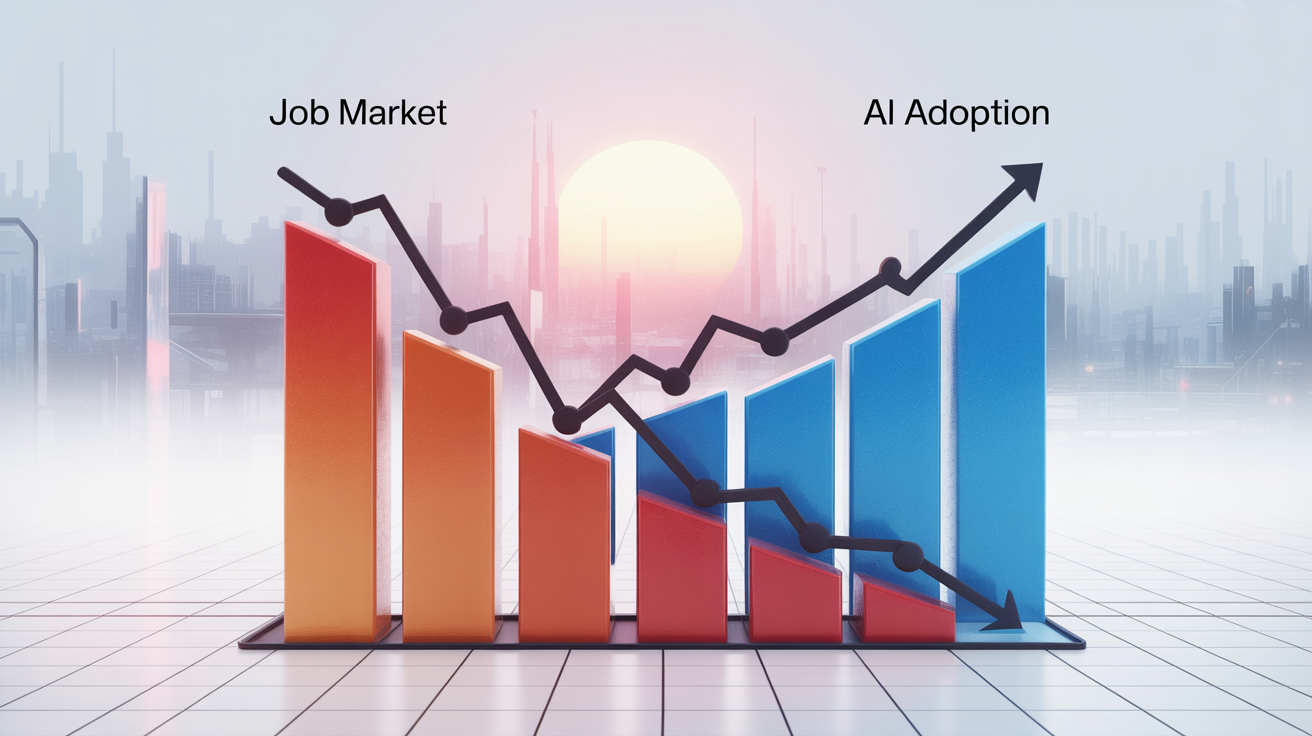Yesterday the Fed chair Jerome Powell held a press conference where he announced the decisions made in the latest meeting of the Fed board. The most anticipated of them, the drop of the interest rate by 25bps, and the likelihood to have two more cuts this year, thus, some perspective.
Now, the reasoning behind the decision. They seem to have taken into consideration two main indicators that pulled in opposite directions. On one side, the inflationary pressure requires a high interest rate to fight against it. On the other side, the US job market numbers are lower than expected, and that would require rate cuts to make borrowing less expensive.
That's what the traditional theory says, the one the Fed follows.
Something else was said. That new jobs created dropped as immigration lowered. That makes sense, since immigrants would take many of the new jobs, particularly the kind that nobody else would. It is interesting to remark that both demand and offer of jobs lowered in the US, not only one side. If only one side would have dropped, there were likely mechanisms to easier adjust the job market so that a balance is reached and the number of jobs increase. But no, apparently there is a balance and the number of jobs is lowering.
That can be the effect of a slowdown in the US economy coupled with lower job demand due to fewer immigrants, as it's been said, but there is another possibility, which I haven't seen mentioned, at least not at the Fed press conference.
That is AI and robots taking more human jobs. I don't know if at the whole US economy this trend is big enough to mess up the job market numbers, but it could be...

I don't think anyone has a viable solution yet for humans that have been and will be replaced by AI and robots at their workplaces in more and more domains, other than the potential of new types of jobs appearing and a pseudo-solution where they would receive some kind of UBI, which has enough flaws, among them being that a large category of humans would become dependent for life of the payer of the UBI (likely government), possibly turning them into people with nothing to look forward to. I believe to some degree paychecks already did that for some people, but at least they had to do something to get them, other than exist.
But as we know, companies do try to optimize their costs, especially when economy isn't going well, and in doing so, they will let go or not hire more people if they have an automated system doing the job at a similar or good-enough level, which only needs to be paid for once when it's purchased, or maybe with a recurrent cost that is lower than the salary and benefits of a worker or several that it replaces.
Does this influence the job market? I think it already does, but it surely will even more in the future. So, the question is: let's say 10 years from now (likely sooner), does it even make sense for the Fed to consider the job market as a basis for its decisions? Or will the definition of "employee" change by then to include both humans and non-humans (unlikely)?
Let's say a series of rate cuts by the Fed would incentivize businesses to borrow more. The question is what is more likely for them to do: hire more people or adopt new technologies that allow them to cut costs and increase production. I think we know what would happen...
That's fine for profits. But if viable solutions for people won't be found too, I don't see good times ahead.